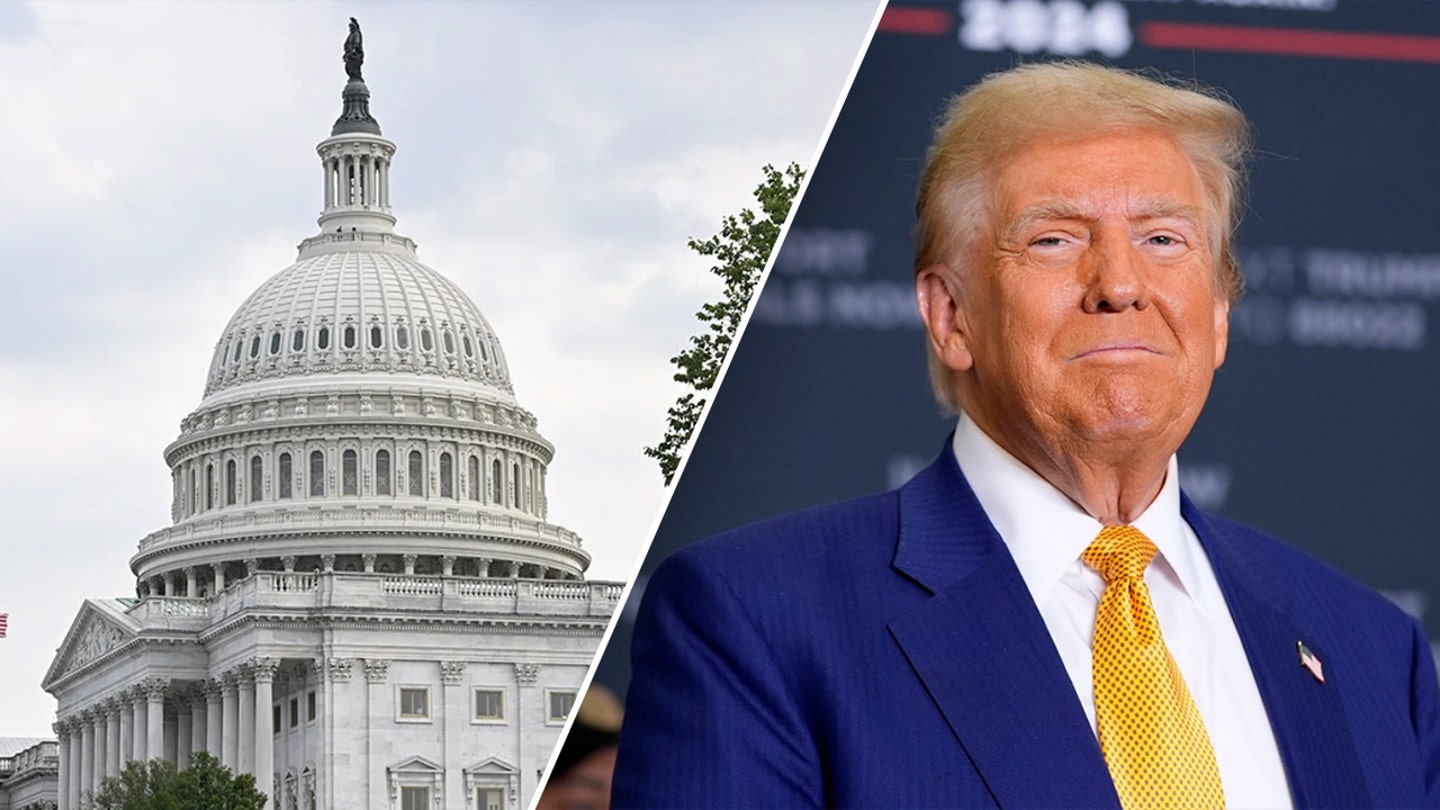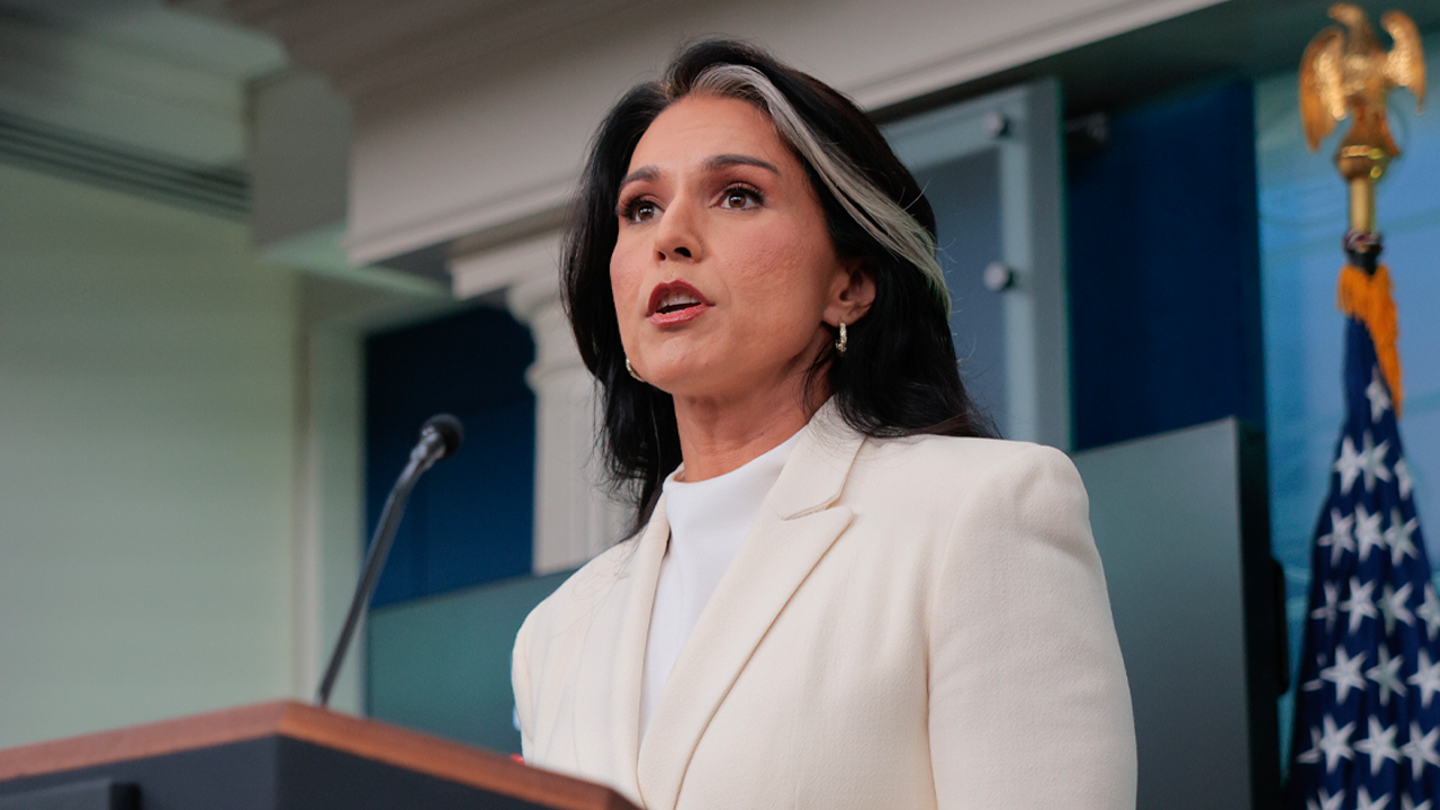
Six GOP-led states to send hundreds of National Guard troops to DC as White House escalates police takeover
Entities mentioned:
- Republican Governors: Loyalty, Duty, Security
- President Donald Trump: Control, Power, Security
- Mayor Muriel Bowser: Self-preservation, Freedom, Justice
- White House: Control, Power, Security
- National Guard: Duty, Obligation, Security
- DC Police: Professional pride, Duty, Security
- Protesters: Moral outrage, Freedom, Justice
Article Assessment:
Credibility Score: 75/100
Bias Rating: 45/100 (Center)
Sentiment Score: 35/100
Authoritarianism Risk: 70/100 (Authoritarian Tendencies)
Bias Analysis:
The article presents multiple viewpoints, including those of the Trump administration, local officials, and protesters. However, there is slightly more space given to critics of the federal intervention, suggesting a subtle lean towards skepticism of the administration's actions.
Key metric: Civil Liberties and Rule of Law
As a social scientist, I analyze that this article highlights a significant shift in the balance of power between federal and local authorities in Washington, DC. The deployment of National Guard troops from multiple states, at the request of the Trump administration, represents an unprecedented federal intervention in local law enforcement. This action raises concerns about the erosion of local autonomy and the potential for abuse of federal power. The stated goals of combating crime and 'beautifying' the city appear to be at odds with local crime statistics and may serve as a pretext for consolidating federal control. The lawsuit filed by DC against the federal takeover of its police department underscores the constitutional tensions at play. This situation could have far-reaching implications for federalism, civil liberties, and the separation of powers in the United States.

Air Force chief abruptly retires early in latest Pentagon shakeup
Entities mentioned:
- Gen. David Allvin: Professional pride, Duty, Self-preservation
- Pete Hegseth: Power, Control, Ambition
- Donald Trump: Power, Control, Influence
- Troy E. Meink: Loyalty, Duty, Professional pride
- US Air Force: Duty, Security, Professional pride
Article Assessment:
Credibility Score: 70/100
Bias Rating: 55/100 (Center)
Sentiment Score: 35/100
Authoritarianism Risk: 65/100 (Authoritarian Tendencies)
Bias Analysis:
The article presents facts from named sources and includes direct quotes, lending credibility. However, it relies on an unnamed source for key information about Hegseth's intentions, which introduces some bias. The tone is generally neutral, with balanced presentation of statements from different parties.
Key metric: Military Readiness and Stability
As a social scientist, I analyze that this article reveals a concerning pattern of instability and turnover in high-ranking military positions. The abrupt retirement of Gen. David Allvin, halfway through his expected term, coupled with the earlier dismissals of other senior military officials, suggests a significant disruption in military leadership continuity. This pattern may negatively impact long-term strategic planning, troop morale, and overall military readiness. The apparent involvement of civilian leadership in these changes raises questions about the balance of civil-military relations and the potential politicization of military appointments. This trend could lead to a loss of institutional knowledge and experience at the highest levels of military command, potentially compromising national security interests.

DOJ prosecutor investigating New York Attorney General Letitia James seen posing for photos outside of her home
Entities mentioned:
- Ed Martin: Loyalty, Power, Revenge
- Letitia James: Justice, Duty, Self-preservation
- Donald Trump: Power, Revenge, Self-preservation
- Department of Justice: Justice, Control, Professional pride
- Abbe Lowell: Duty, Justice, Professional pride
- Elie Honig: Professional pride, Justice, Duty
- Adam Schiff: Justice, Duty, Self-preservation
Article Assessment:
Credibility Score: 70/100
Bias Rating: 40/100 (Lean Left)
Sentiment Score: 30/100
Authoritarianism Risk: 65/100 (Authoritarian Tendencies)
Bias Analysis:
The article leans slightly left in its framing, focusing more critically on Ed Martin's actions and their implications. While it includes quotes from multiple perspectives, there's a subtle emphasis on the potential impropriety of the DOJ's actions.
Key metric: Public Trust in Government Institutions
As a social scientist, I analyze that this article highlights a concerning trend of politicization within the Justice Department. The actions of Ed Martin, a DOJ prosecutor, in investigating New York Attorney General Letitia James while engaging in behavior that appears politically motivated and outside normal prosecutorial conduct, significantly impacts public trust in government institutions. This situation demonstrates a potential misuse of federal investigative powers for political purposes, which can erode faith in the impartiality and integrity of the justice system. The blurring of lines between political agendas and legal proceedings, as evidenced by Martin's multiple roles and public statements, raises questions about the separation of powers and the independence of law enforcement agencies. This case may lead to decreased public confidence in the objectivity of high-profile investigations and the overall fairness of the legal system, potentially weakening democratic norms and institutions.

Trump DOJ is investigating whether DC crime stats were manipulated
Entities mentioned:
- Trump Justice Department: Power, Control, Justice
- Washington, DC Metropolitan Police Department: Self-preservation, Professional pride, Security
- Donald Trump: Power, Control, Moral outrage
- Muriel Bowser: Self-preservation, Duty, Security
- US Attorney's Office in DC: Justice, Duty, Control
Article Assessment:
Credibility Score: 65/100
Bias Rating: 55/100 (Center)
Sentiment Score: 35/100
Authoritarianism Risk: 65/100 (Authoritarian Tendencies)
Bias Analysis:
The article presents both the Trump administration's claims and the city's counter-arguments, showing an attempt at balance. However, the framing slightly favors the local government's perspective, particularly in highlighting the reported crime reduction statistics.
Key metric: Violent Crime Rate
As a social scientist, I analyze that this investigation into the potential manipulation of crime statistics in Washington, DC has significant implications for the perception and reality of public safety in the nation's capital. The conflict between federal and local authorities over crime data accuracy highlights the politicization of law enforcement statistics and their use in shaping policy. This investigation could undermine trust in local government reporting and potentially justify increased federal intervention in local affairs. The discrepancy between the Trump administration's claims of rising crime and the city's reported decrease in violent crime rates suggests a complex interplay between data interpretation, political narratives, and policy-making. This situation may lead to increased scrutiny of crime reporting methods nationwide and could impact future federal-local law enforcement relationships.

Conservative roadmap targets Medicaid, student loans for Trump's 'big, beautiful' sequel
Entities mentioned:
- Economic Policy Innovation Center (EPIC): Influence, Competitive spirit, Righteousness
- Republican Party: Power, Control, Righteousness
- Donald Trump: Legacy, Power, Ambition
- Democratic Party: Justice, Moral outrage, Self-preservation
- Paul Winfree: Influence, Professional pride, Ambition
- Brittany Madni: Professional pride, Influence, Duty
- Mike Johnson: Ambition, Power, Loyalty
Article Assessment:
Credibility Score: 70/100
Bias Rating: 65/100 (Lean Right)
Sentiment Score: 55/100
Authoritarianism Risk: 40/100 (Generally Democratic)
Bias Analysis:
The article leans right due to its primary focus on conservative policy proposals and reliance on conservative sources. While it mentions Democratic opposition, it provides more detailed coverage of Republican perspectives and strategies.
Key metric: Federal Budget Deficit
As a social scientist, I analyze that this article highlights a significant push by conservative groups to influence future Republican policy-making, particularly focusing on fiscal reforms and social conservative priorities. The proposed changes to Medicaid, student loans, and other federal programs could substantially impact the federal budget deficit. The emphasis on using budget reconciliation to achieve these goals suggests a strategy to bypass potential Democratic opposition, which could lead to more partisan policy-making and potentially increase political polarization. The focus on social conservative issues like abortion and transgender rights indicates an attempt to merge fiscal policy with cultural wedge issues, which could further divide the electorate and impact future elections.

Conservative 'playbook' to beat Democrats in court outlined in senator's new book
Entities mentioned:
- Sen. Eric Schmitt: Ambition, Righteousness, Competitive spirit
- Biden administration: Power, Control, Influence
- Dr. Anthony Fauci: Professional pride, Control, Influence
- Chinese Communist Party: Power, Control, Self-preservation
- Supreme Court: Justice, Duty, Influence
Article Assessment:
Credibility Score: 65/100
Bias Rating: 75/100 (Lean Right)
Sentiment Score: 55/100
Authoritarianism Risk: 45/100 (Mixed/Neutral)
Bias Analysis:
The article leans right, primarily presenting a conservative perspective. It focuses on Republican strategies and successes, with limited counterarguments or opposing viewpoints presented.
Key metric: Judicial System Effectiveness
As a social scientist, I analyze that this article highlights a growing trend of using the judicial system as a political battleground. Sen. Schmitt's approach of challenging Democratic policies through lawsuits represents a shift in how political disagreements are being resolved. This strategy could potentially impact the effectiveness and impartiality of the judicial system by increasing its politicization. The emphasis on appointing ideologically aligned judges further underscores this trend. While this may lead to more conservative-leaning rulings in the short term, it risks undermining public trust in the judiciary's independence and could lead to cyclical shifts in judicial interpretations as political power changes hands.

Trump’s push for Putin-Zelenskyy talks hinges on Kremlin's conditions
Entities mentioned:
- Donald Trump: Influence, Legacy, Power
- Vladimir Putin: Power, Control, Pride
- Volodymyr Zelenskyy: Self-preservation, Duty, Unity
- Ivana Stradner: Professional pride, Wariness, Duty
- Kurt Volker: Professional pride, Duty, Wariness
- Karoline Leavitt: Duty, Loyalty, Obligation
- Maria Snegovaya: Professional pride, Curiosity, Wariness
Article Assessment:
Credibility Score: 75/100
Bias Rating: 55/100 (Center)
Sentiment Score: 35/100
Authoritarianism Risk: 45/100 (Mixed/Neutral)
Bias Analysis:
The article presents multiple perspectives, including both US and Russian viewpoints, as well as expert opinions. While it leans slightly towards a Western perspective, it attempts to provide a balanced view of the diplomatic situation.
Key metric: International Diplomatic Influence
As a social scientist, I analyze that this article highlights the complex dynamics of international diplomacy surrounding the Russia-Ukraine conflict. Trump's initiative to arrange talks between Putin and Zelenskyy demonstrates the US's attempt to reassert its global diplomatic influence. However, the reluctance from the Russian side and the skepticism expressed by experts suggest significant challenges in achieving a diplomatic breakthrough. The article underscores the importance of power dynamics, with Putin's motivations centered on projecting Russian strength and equality with the US. The experts' analysis points to a potential stalemate, with Putin unlikely to compromise without significant concessions. This situation impacts the US's diplomatic influence by showcasing both its ability to initiate high-level talks and the limitations of its leverage over Russia. The article also highlights the broader implications for NATO and European security, suggesting that the outcome of this diplomatic effort could have far-reaching consequences for US global leadership and alliance structures.

Gabbard removes clearances from 37 officials at Trump's direction over politicizing intelligence
Entities mentioned:
- Tulsi Gabbard: Duty, Justice, Loyalty
- Donald Trump: Power, Control, Revenge
- James Clapper: Influence, Self-preservation, Loyalty
- Intelligence Community: Professional pride, Security, Duty
Article Assessment:
Credibility Score: 65/100
Bias Rating: 70/100 (Lean Right)
Sentiment Score: 30/100
Authoritarianism Risk: 75/100 (Authoritarian Tendencies)
Bias Analysis:
The article leans right due to its uncritical presentation of the administration's actions and rationale. It heavily relies on Gabbard's statements without presenting opposing viewpoints or context from affected officials.
Key metric: Government Accountability and Transparency
As a social scientist, I analyze that this action represents a significant shift in the relationship between the executive branch and the intelligence community. The revocation of security clearances for 37 current and former officials, at the direction of President Trump, indicates an attempt to assert control over the intelligence apparatus and potentially silence dissenting voices. This move could have far-reaching implications for government accountability and the independence of intelligence agencies. The justification of politicization of intelligence raises questions about the separation of intelligence work from political influence, which is crucial for maintaining the integrity and effectiveness of national security operations. This action may deter future officials from providing candid assessments that contradict political narratives, potentially compromising the quality and objectivity of intelligence analysis.

Schiff launches legal defense fund in response to claims Trump is 'weaponizing' justice system
Entities mentioned:
- Adam Schiff: Self-preservation, Justice, Professional pride
- Donald Trump: Revenge, Power, Influence
- White House: Control, Influence, Power
- FBI: Duty, Justice, Security
- Joe Biden: Power, Control, Legacy
Article Assessment:
Credibility Score: 65/100
Bias Rating: 65/100 (Lean Right)
Sentiment Score: 30/100
Authoritarianism Risk: 45/100 (Mixed/Neutral)
Bias Analysis:
The article leans right, evidenced by its heavy reliance on Trump and White House statements criticizing Schiff. While it includes Schiff's perspective, the framing and choice of details emphasize allegations against him.
Key metric: Political Polarization Index
As a social scientist, I analyze that this article highlights the ongoing political polarization in the United States. The establishment of Schiff's legal defense fund in response to alleged 'weaponization' of the justice system by Trump and his allies indicates a deepening divide between political factions. This situation likely contributes to increased distrust in governmental institutions and the justice system, potentially eroding public confidence in democratic processes. The article's focus on accusations and counter-accusations between high-profile political figures may further entrench partisan attitudes among the public, making bipartisan cooperation more challenging and potentially impacting governance effectiveness.

Justice Barrett teases new memoir in abrupt conference exit
Entities mentioned:
- Amy Coney Barrett: Professional pride, Duty, Unity
- Supreme Court: Justice, Duty, Influence
- Seventh Circuit: Professional pride, Duty, Unity
- Antonin Scalia: Legacy, Influence, Justice
- Donald Trump: Power, Control, Ambition
Article Assessment:
Credibility Score: 75/100
Bias Rating: 55/100 (Center)
Sentiment Score: 60/100
Authoritarianism Risk: 30/100 (Generally Democratic)
Bias Analysis:
The article presents a balanced view of Barrett, including both conservative and liberal perspectives on her tenure. While it leans slightly right by focusing on a conservative justice, it maintains a generally neutral tone and includes criticisms from both sides.
Key metric: Judicial Independence
As a social scientist, I analyze that this article primarily impacts the metric of Judicial Independence. Barrett's emphasis on maintaining professionalism and respect among judges, despite ideological differences, suggests a commitment to preserving the integrity and independence of the judiciary. Her brief appearance and limited remarks, coupled with the anticipation of her memoir, indicate a cautious approach to public engagement that may be aimed at protecting the court's perceived neutrality. The article's mention of the Supreme Court's rulings on Trump administration policies highlights the ongoing challenge of maintaining judicial independence in a politically charged environment. Barrett's emerging role as a less predictable justice further underscores the complexity of judicial independence in practice.